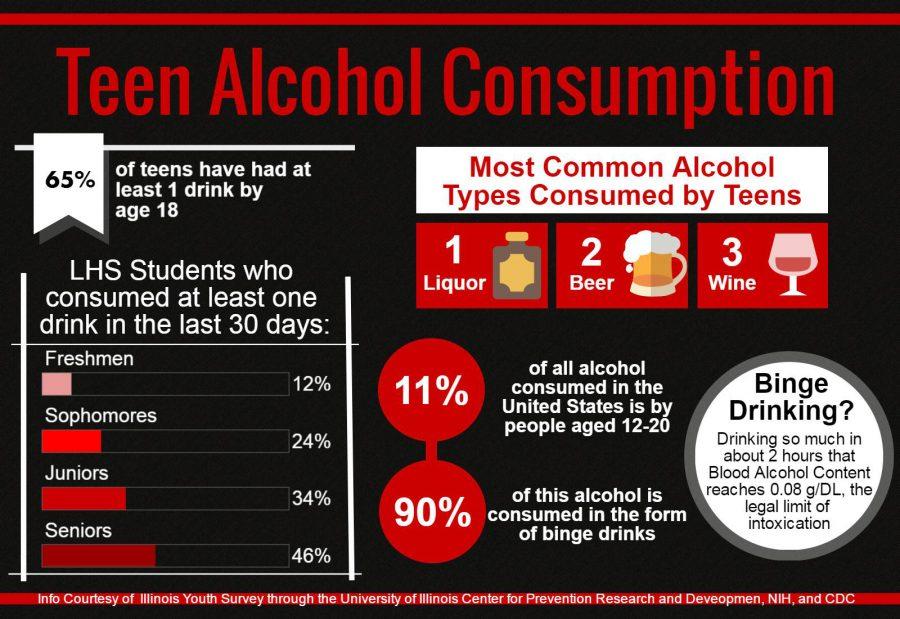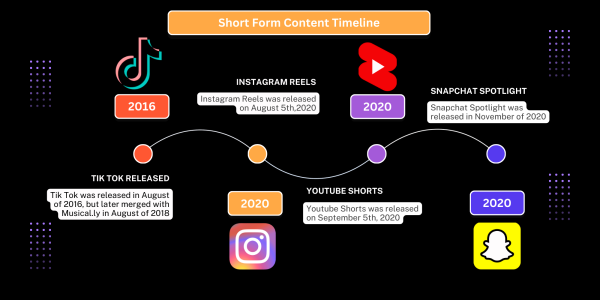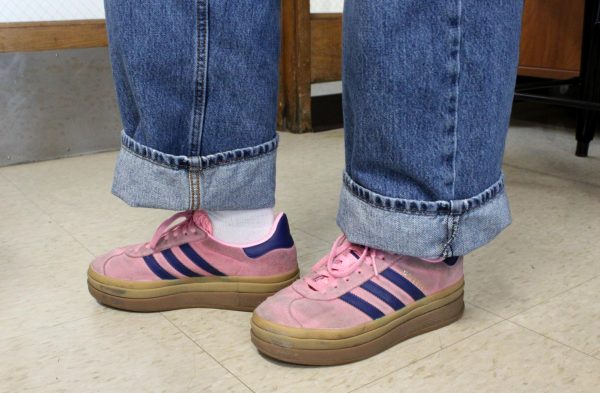The Other Side of the Story
If you ask Libertyville students how they spend a typical Friday or Saturday night, they’d tell you they usually hang out with friends, watch a sporting event, or maybe just chill at their house.
Another activity, however, is also common for students, but they won’t admit it to just anyone. Considered taboo to bring up, Libertyville’s most poorly kept secret is underage drinking. More common than a student would like to admit or a teacher would want to imagine, the truth is that drinking is an incredibly popular pastime for LHS students.
For obvious reasons, the students’ perspective on this controversial topic is often not heard. Parents and teachers alike know that drinking takes place, yet the students’ viewpoints are swept under the rug. It’s time to remove the rug, break free of some boundaries, and discuss the other side.
No story is complete without a well-rounded understanding, and many students are ready to let their side be known. In order to get a more complete picture, I spoke to students of various genders and ages. Students who don’t drink were not interviewed, as this story is not trying to pit two sides against each other. Rather, the goal was to get in the head of a teenage drinker and better understand why they do what they do.
This feature is not endorsing underage drinking and nothing here is my opinion. This is simply the students’ words and secrets translated onto paper.
Why Students Drink
We’ve all heard the adult perspective of underage drinking and why students should abstain from it, but one has to wonder how much of what these adults say shapes what students truly think. As a general consensus among the interviewed students, adults telling them not to drink has really had no influence on them, as they have come to form their own beliefs.
Each student reiterated that they don’t believe underage drinking to be bad if done responsibly: “Obviously no drinking and driving, don’t drink to the point of getting alcohol poisoning, but… as long as you are smart about it and keep it safe, I don’t think it’s that bad,” stated an LHS senior male honor roll student.
In his opinion, drinking is a personal choice that is doing no harm to anyone: “There’s a lot worse things out there that I could be doing instead,” he added.
There are countless reasons as to why students drink. In the words of rap icon Kendrick Lamar, “Some people like the way it feels, some people wanna kill their sorrows, some people wanna fit in with the popular.” Varying from simply looking for a fun time, to trying to help forget a negative in their life, to trying to fit in and be “cool,” drinking is a multidimensional tool that teenagers use.
When asked why he drinks, a 17-year-old male student athlete responded, “I enjoy it. I don’t feel like there’s any downsides to it really. I’ve never had anything bad happen to me because I drink. Why not do it when it’s fun?”
This “why not” mentality is widespread amongst teens. Alcohol can boost confidence and make any average student feel like king of the world. Students feel like they are stuck in a boring and stressful environment and need an escape: “there’s not much to do in this town,” stated the honor roll senior boy, and, according to him, drinking allows him to enjoy himself without even having to leave his house.
Additionally, some students say they drink to prepare themselves for college. Incredible academic opportunities (for the slight fee of a $40,000 tuition) await, yet what excites some students most are the parties: “everybody drinks [in college], so I want to be a little bit prepared so I don’t, like, die in college, you know,” explained an LHS 18-year-old girl.
How Drinking Defines You
Some people may drink because they think that it will boost their social standing, but according to those interviewed, this is a ridiculous proposition. Drinking means nothing to one’s standing in high school society, they say. Once thought of as something that only the “fast crowd” or “popular” kids do, that mentality is now gone.
Drinking is found in many groups and cliques at LHS, and, although some may think it makes them cooler, the majority of students scoff at that idea. Many adults try to ward students away from drinking by saying that it won’t make them look better among their friends, but this is a futile attempt to scare off teens because they already know this. Teenagers don’t really seem to care what others are doing in regards to drinking; instead, they have the mindset that if something makes you happy, then go for it.
LHS students generally don’t judge someone differently if they know that they drink, and many stated that they don’t care at all. “No, I don’t really care,” said the 18-year-old girl. “As long as they’re not being stupid — I will judge people who drink and drive because that’s very unintelligent, but if they’re being safe about [drinking] then I don’t care.”
The students interviewed brought up the fact that we’ve always been taught not to judge people who have differing viewpoints than you, and they question why one judges when it comes to drinking.They feel that each person is entitled to their own life choices, and the students interviewed expressed that if no one is put in danger by one’s decision to drink, then they should be left to do as they please.
A freshman boy who I spoke to, however, did think that drinking says something about a person: “I don’t really care… and I don’t judge them solely on that… but it does say a little bit about them.”
A common and often misguided stereotype is that people who drink are automatically considered “bad” people, however that word may be defined. Adults might overlook the positive attributes of a person and shape their judgements simply around something that the kid likes to do for fun, something that is legal in a few short years.
This notion is not true among those interviewed, as these students all excel in the classroom and outside of it. All are either current or former athletes, and most boast a well-over 30 ACT score.
The 17-year-old male athlete put it best, stating that “there are bad people who drink, but not everyone who drinks is a bad person.” There are exceptions to everything, and the students interviewed believe that grouping every student who partakes in drinking as “bad” seemed rather unfair.
The honor roll senior boy did state that drinking could end up defining who you are but only if you let it. “If someone makes it a habit to drink, like multiple times a week or every day or something, then that could end up defining them,” he said.
Overall, students felt that there is much more to a person than if they drink or not: “If they’re a good person or a bad person, it’s regardless of that. It’s about their personality,” stated the freshman boy.
Is it Worth the Risk?
Many students view alcohol as an easy way to guarantee a good time, but that is not always the case. According to The National Institute on Alcohol Abuse and Alcoholism, alcohol plays a part in upwards of 4,000 deaths per year amongst minors, including a number of tragedies that hit close to home at LHS.
Despite this, a large number of students still drink believing that they can stand above the statistic. Many things in life bring risk with it: simply crossing the street can have troubling results, and just because one drinks does not mean that they are putting themselves in peril, these students believe.
Students feel that many of the terrible results come from poor decision making, adding that it isn’t too hard to be smart and safe. In the opinion of the students, drinkers just have to make sure they have secured a ride home and be able to control themselves enough not to overdrink.
“It’s all about responsibility and knowing your limits,” shared the honor roll senior boy. “When I drink, I make sure I have somewhere to stay; it’s really not hard to be safe.”
Many teenagers feel invincible, as if nothing they do can hurt them, and this is another factor that allows teens to drink without being scared of the consequences: “I think everyone thinks that, ‘Oh, that won’t happen to me.’ I think that. I guess it could be me, but no one ever thinks that it’s going to happen to them,” said the 18-year-old girl. This mix of naivety and confidence is what pushes the tragedies out of the minds of those who drink.
The students I talked to all endorsed drinking and said it’s nothing more than a good time, but all stated they knew when to draw the line: driving while intoxicated. Considered the absolute dumbest and most dangerous thing one can do while drunk, each student said that they have never driven or even considered driving while under the influence. Drinking is thought of as an enjoyable pastime, but all good intentions are thrown out the window if driving is involved.
Regardless of what people do, and regardless that underage drinking has become somewhat of a norm amongst many teens, drinking as a minor is illegal. Teenagers risk getting in trouble with their school or parents, not to mention the legal trouble that could take place if caught. Despite this, many students simply don’t care, saying that drinking has become so mainstream that it doesn’t even seem bad anymore: “I never even really think of it as illegal,” said an LHS junior female athlete.
This was the consensus among those spoken to.
“I never think I’m actually going to get in trouble,” shared the 18-year-old girl. “When you say ‘breaking the law,’ it sounds a lot worse… other things are a lot bigger deal.” She added that it wouldn’t be possible to catch every underage drinker, and that makes it feel a lot safer. The honor roll senior boy admitted that he gets scared about getting caught, but once he starts drinking, all fear dissipates.
“It’s fun to do, and I don’t think about the consequences when I’m doing it,” he said.
Drinking Age
The current drinking age in America, despite the frequency of which it is broken, is 21 years old. This age is higher than many other countries, and the students interviewed think that this age needs to be adjusted. Interestingly enough, students didn’t cite wanting to be able to drink more as a reason to lower the age, rather stating that it would cut back on the dangers of drinking.
“Having it at 21 makes underage people make more stupid decisions trying to get alcohol and be more rebellious. If it’s legal, then people won’t think it’s that big of a deal,” said the honor roll senior boy.
American teenagers are always being shielded from alcohol, making them crave it even more. Some believe that simply having teens with more experience around alcohol could solve a lot of problems.
They think of it like driving a car. When you’re 16, you don’t immediately hop into a truck on your first lesson and go 70 down the highway. You learn slowly and ease into it. You learn responsibility and how to be safe. You’re in a controlled environment, and you have people to guide you, so that when you’re ready to go off on your own, you can do it safely and responsibly.
The junior female athlete explained that she feels like it has become the norm not to wait until 21 to drink, so one would be better off learning how to do it safely at a younger age than waiting to be unleashed at 21.
The drinking age is a controversial topic, one that many in our nation go back and forth on. The freshman boy understands why it’s so difficult to pick an age, and even conceded that 21 might be the best way to go: “I feel like it’s hard to put one age on it because obviously people mature at different times of their lives. So some people would be more reckless [if the age was lowered] while others are ready well before they’re 21.”
The overall belief amongst those interviewed is that 16 is an acceptable age to start drinking. They reasoned that if one is deemed responsible enough to drive a car, they should also have the freedom to drink.
The students admitted that lowering the age to 16 would most likely never happen, but nearly all agreed that the age should at least be lowered to 18 years old. Many new freedoms come with turning 18. For one, you are now considered an adult. As an adult, you can vote, smoke, and join the military, among other things, yet you still have three years to wait until you can legally consume alcohol, a fact that brought differing responses from those interviewed.
The honor roll senior boy stated that he doesn’t feel like there is a difference between an 18 and 21 year old: “If someone can decide what’s good for them at 18 years old. When they’re 21, they probably have the same brain power. There’s no difference.”
The 18-year-old girl said that those three years don’t seem like much, but they could play a big role in one’s maturity and ability to handle alcohol. “I think those three specific years are big — because you’re 18 and you’re in high school — and then you’re 21, and you’re almost done with college. You’ve been through a lot, you’ve been independent,” she explained. She continued that she doesn’t think that the three years will have too much of an impact, but does see how the experiences could shape you.
Conclusion
There are two sides to every story, even though this side of drinking is probably one that most adults don’t want to hear. Students, however, are willing and want to let their side be known, with some stating that they’d like to possibly reduce the negative connotation surrounding it. Additionally, some students explained that if one wishes to stop underage drinking, they have to get a better understanding of what makes the kid do what they do.
The students did admit, however, that they don’t plan on stopping any time soon. Drinking is such a common theme in pop culture and music, it’s no wonder that people are being exposed and tempted by it at a younger and younger age.
Students who drink understand that the law says they shouldn’t, but many don’t believe that there is any suitable reason for them not to. Their general feeling is as long as everyone is safe and responsible, what’s the harm?







![Senior River Thompson joins the Jazz Ensemble by singing “That Old Black Magic” by Mercer and Arlen Arr. Mark Taylor, along with senior Annie Brody on guitar and junior Thomas Teixeira on bass, earning big applause. “[The concert had] great energy because it's the last [jazz concert] of the year,” Brody said.](https://www.lhsdoi.com/wp-content/uploads/2025/04/Eight-That-Old-Black-Magic-600x400.jpg)
![Mr. Abullh Ali, manager/assistant, helps open Queen Yemeni Coffee in downtown Libertyville at 606 North Milwaukee Ave. With the help of employees such as manager and LHS senior Yousef Taha, they are able to bring the Yemeni and Ethiopian culture to Libertyville by using their Queen spices, cinnamon and cardamom in their drinks such as Adani Chai, which is inspired by Sheda, the Queen of Yemen and Ethiopia. “The history of our coffee [is] a long history and we believe that Yemen and Ethiopia started the coffee and we are bringing something unique to the community,” Mr. Ali said.](https://www.lhsdoi.com/wp-content/uploads/2025/04/Photo-1-600x400.jpg)


